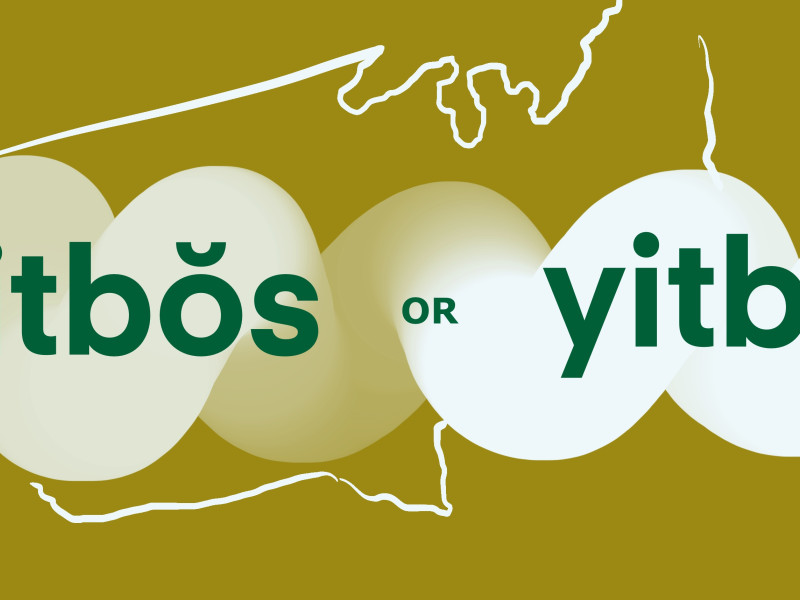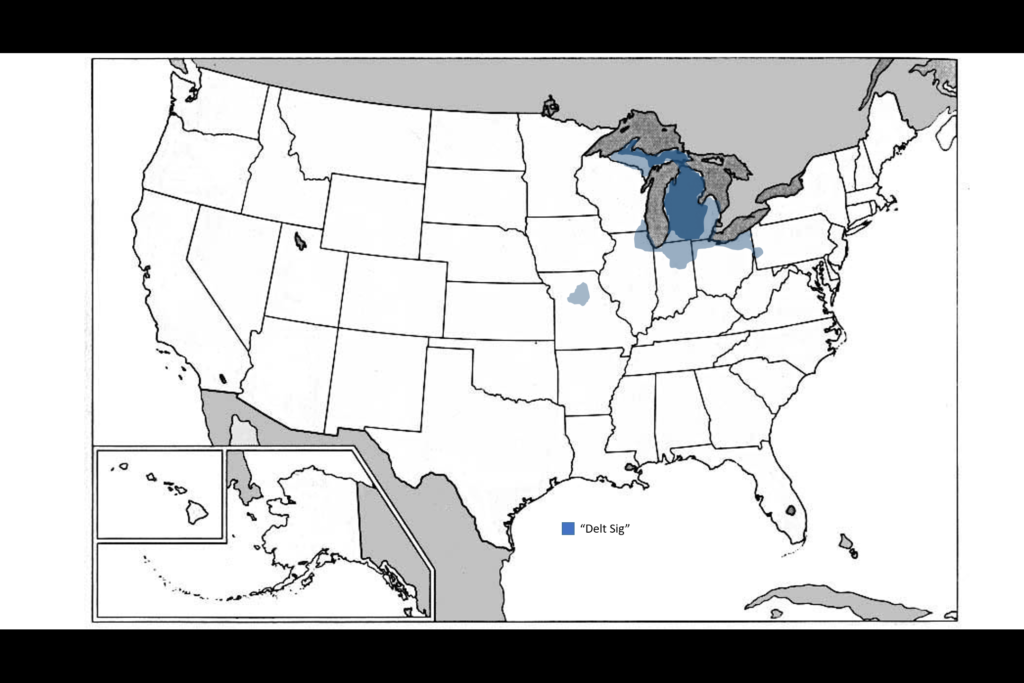





Written By Nik Koulogeorge

Written By
Published
Jun. 26, 2021
Updated
Apr. 13, 2023
Tagged
Fraternity men often fall in love with their fraternity’s iconography and brand. Members of all ages and levels cherish and preserve the crests, flags, “letters,” traditions, nicknames, hand signals, and so on. Like many federal entities, fraternities deal with simmering cultural tensions. That is one thing I find most interesting about fraternities, the ways that chapters and regions [occasionally try to] stand out.
My fraternity, Delta Sigma Phi, has a very similar name to Delta Sigma Pi. When both fraternities existed at the same school, members of one fraternity would alter their chapter's nickname so as not to be confused with the other. Students would occasionally ask why I was setting up a second chapter of the business fraternity when I worked in expansion.
The two fraternities eventually agreed on official nicknames they'd encourage among members and use in publications and marketing. For better or worse, nicknames are tough to break with. Many of the aforementioned chapters co-existed for dozens of years and were known to hundreds or thousands of students by their chosen nicknames and chose to stick with them.
I learned through my interfraternal experiences that many fraternities deal with a similar lack of brand congruence. This fragmentation is certainly annoying if you are an inter/national leader or communications professional, but, frankly, there are bigger fish to fry. Local and regional differences like this should be embraced. They add flavor to the story of each fraternity; they don't detract from it.
Determine regional variations (if any) in the nicknames my brothers used to refer to their chapter (Delta Sig, Delt Sig, Delta, etc.)
Determine if there was a clear regional variation in the way members pronounce "YITBOS" (a term with a secret meaning, but the primary source of controversy - members playfully debate this at almost every fraternity program).
From my historical knowledge, I knew that there was a regional component to chapters’ nicknames and pronunciations of “YITBOS.” But most of what I knew was heresy or anecdotal information. So, I believed that learning about and documenting these cultural variances could offer new, creative ways to tell our story.
Fraternity members often emphasize the stories of the founding members of their organization, the evolution of its policies, or its size and scope when telling their story. This pseudo study is meant to encourage greater exploration of our respective cultural histories.
If you’re a Delta Sig, check out this custom YITBOS merchandise on my RedBubble shop.
I won’t tell you what YITBOS means, but it is taught to every initiate of Delta Sigma Phi Fraternity. For non-Delta Sigs reading this post: Relish in the mystery.
Delta Sig members disagree on how to pronounce the "o" sound. The "official" pronunciation (the one promoted by the national fraternity) has the "o" making the same sound as it does in "row" or "bow." This is the dominant form, but many members pronounce the "o" to sound as it does in the words "boss" or "toss." I don't really care how people say it, and I think that we the point of "YITBOS" if we focus too intensely on its pronunciation. It means the same thing to everyone, and that's what matters, yeah?
My survey reached more than 300 members from more than 50 chapters (about half of the Delta Sig chapters at the time) how they pronounce YITBOS. The dark areas represent chapters that participated in the survey, with the assumption that those members influence other nearby members and chapters.
Here are the results from the 2017 survey in map form:
Figure 1-A:
 Figure 1-B:
Figure 1-B:
 Figure 1-A shows areas where you are likely to hear YITBOS pronounced with the "o" sounding as it does in "row." Figure 1-B identifies areas where YITBOS is pronounced with the "o" sounding as it does in "boss" or "toss." The latter is prominent in the Southeast and Michigan, with sporadic use throughout the midwest. To get a better idea of how they compare, I combined the two maps into one.
Figure 1-A shows areas where you are likely to hear YITBOS pronounced with the "o" sounding as it does in "row." Figure 1-B identifies areas where YITBOS is pronounced with the "o" sounding as it does in "boss" or "toss." The latter is prominent in the Southeast and Michigan, with sporadic use throughout the midwest. To get a better idea of how they compare, I combined the two maps into one.
Figure 1-C:
 First, the strong “o” sound appears to be the dominant pronunciation of YITBOS, and a majority of respondents chose that option. The fraternity is strongest in California, the mid-Atlantic states, and the Great Lakes region, most of which fall into the strong “o” camp.
First, the strong “o” sound appears to be the dominant pronunciation of YITBOS, and a majority of respondents chose that option. The fraternity is strongest in California, the mid-Atlantic states, and the Great Lakes region, most of which fall into the strong “o” camp.
Note the patches of green (strong "o" sound) in South Carolina, Georgia, Alabama, and Florida. These are areas where one would assume YITBOS would be pronounced with a soft “o" based on responses from surrounding chapters. Why are some chapters different?
The answer is probably rooted in expansion. Fraternities used to grow by absorbing local or regional fraternity chapters. They would often be taught the traditions and rituals by students or alumni volunteers from the same area. That helps to explain how these little differences in pronunciation become regional. Today, many fraternities hire professional recruiters to establish or re-establish chapters of the fraternity. Those chapters in the Southeast who pronounce YITBOS with a strong "o" sound were all recruited by national recruiters who used and taught them the "official" way to use the term.
It would be interesting, in a follow-up survey, to see if these chapters acclimated to pronunciation of their neighbors or if they maintained a strong “o” sound. Such information may also provide insight into the relative isolation or socialization of a chapter within the fraternity (at least in the case of a relatively “new” chapter).
The nickname of the Fraternity is meant to serve as a means of recognition to the outside world, and so it should make sense that the Fraternity has put more effort into ensuring that there is a common nickname.
In this section of the survey, I asked chapters which nickname they heard "most often" in their chapter but included a follow-up question asking the members to choose from a list of nicknames they occasionally used.
Delta Sig (Figure 2-a), the official nickname, was selected as a primary or secondary option by almost every participant.
The next most-used nicknames are DSP (Figure 2-b) and D-Sig (Figure 2-c) respectively. The former is an official nickname Delta Sigma Pi, per the agreement mentioned above between the two organizations. "DSP" is preferred at many western chapters and is a secondary nickname throughout most of the country. "D-Sig" is a natural shortening of Delta Sig, and so it is understandably popular, but rarely a top choice.
Delt Sig (Figure 2-d) is the preferred term throughout much of Michigan and a popular second option in the areas surrounding the Great Lakes. One thing I learned while working in fraternity expansion is that alumni in this area would use the term Delt Sig; which may speak to my point in the YITBOS section about acclimation in recently established or re-established chapters.
Rounding out the nicknames are "Delta," (Figure 2-e) which is probably more popular in the Northeast than we would be led to believe from this map, ”Sig," "Sigma," (Figure 2-f), or some other variation of Sigma, which are used in some central parts of the nation, and “Dig,” (no map) a popular nickname in one chapter at Stetson in Florida.
Figure 2-a
 Figure 2-b
Figure 2-b Figure 2-c
Figure 2-c
 Figure 2-d
Figure 2-d
 Figure 2-e
Figure 2-e
 Figure 2-
Figure 2-
 Here too we can connect the dots between nickname variations and the fraternity's history. Delta Sigma Pi was founded in Ohio in 1907 before my fraternity made a significant westward expansion from the Northeast. Chapters of my fraternity in and around Ohio may have chosen alternative nicknames so as not to be confused with Delta Sigma Pi. Options like Delt Sig, D-Sig, DSP, and Sigma are all popular in or local to those areas.
Here too we can connect the dots between nickname variations and the fraternity's history. Delta Sigma Pi was founded in Ohio in 1907 before my fraternity made a significant westward expansion from the Northeast. Chapters of my fraternity in and around Ohio may have chosen alternative nicknames so as not to be confused with Delta Sigma Pi. Options like Delt Sig, D-Sig, DSP, and Sigma are all popular in or local to those areas.
It would be interesting to conduct this survey with a larger audience. Gathering answers from more alumni, more members from the Northeast and the members of chapters established between 2017 and 2021 may support or contradict the hypotheses shared in this article.
What questions about your fraternity’s unique culture would you ask of your brothers or sisters?
Help keep it going and growing by contributing as little as $2. (Links below will take you to a secure payment portal via Stripe)
A free way to support: Subscribe to the Fraternity Man newsletter for [very occasional] updates and giveaways.